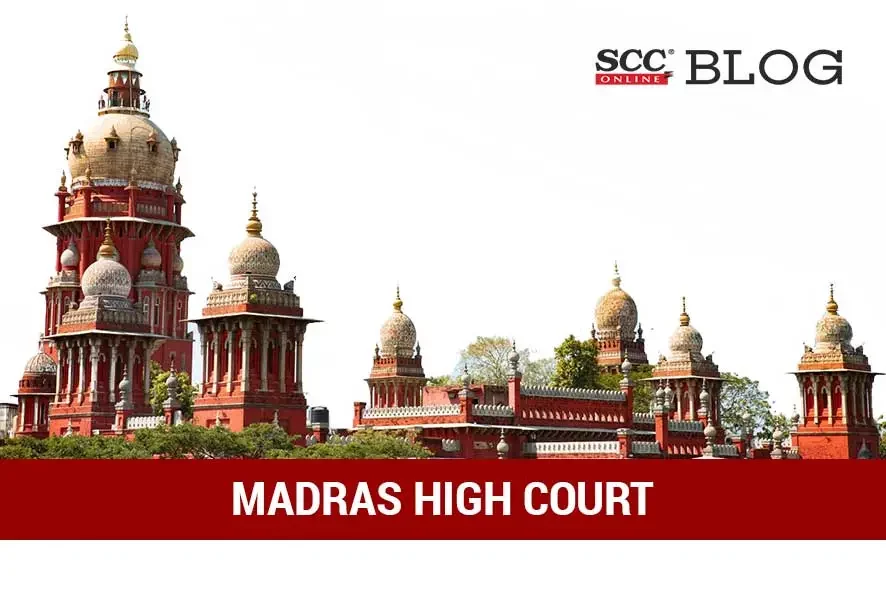Madras High Court: In a second appeal filed by the wife under Section 28 of Hindu Marriage Act read with Section 100 of Code of Civil Procedure, 1908 (‘CPC’), to set aside the order passed by the District Judge, wherein the Court allowed the husband’s petition seeking divorce on the ground of cruelty and desertion, R.Vijayakumar, J. has opined that the divorce petition lacks pleadings with regard to the mental cruelty, desertion. The litigation initiated by the wife is only to protect her property rights and her custody of her son. When the initiation of such proceedings is for the vindication of her rights, the said proceedings can never be considered to be a ground for mental cruelty. Thus, the Court set aside the judgment and decree of the First Appellate Court and restored the judgment and decree of the Trial Court.
Background
In the case at hand, the appellant had got married to the respondent on 14-09-1987. In the divorce petition it was alleged that the wife was leading an adulterous life. The husband filed a petition seeking divorce on the ground of cruelty and desertion. The said petition was dismissed by the Trial Court. However, the First Appellate Judge after re-appreciation of oral and documentary evidence, has allowed the appeal and granted a decree for divorce. Thus, the wife filed this present appeal.
Analysis
After perusing the divorce petition, the Court said that it indicates that the husband and wife are residing in the same address even on the date of filing of the divorce petition. Therefore, the husband has not come forward to place on record on what date the wife had left the matrimonial home and where she was residing for the past 10 years.
The Court took note of the Explanation to Section 13(1) of the Hindu Marriage Act, 1955 that provides the meaning for desertion, as desertion of the spouse by the other spouse without reasonable cause and without the consent or against the wish of such spouse. It includes willful neglect of the spouse by the other spouse.
The Court noted that even after initiation of civil and criminal Court proceedings, the wife had never left the matrimonial home and she continues to reside there even today. Only the husband had left the matrimonial home and was alleged to have contracted a second marriage.
The Court said that the husband has suppressed the fact that he is residing away from the matrimonial home in his divorce petition. Even the First Appellate Court has recorded a finding that the husband has not mentioned the date of desertion. However, the First Appellate Court has proceeded to grant a decree for divorce on the ground of desertion that the husband was forced to leave the matrimonial home due to mental cruelty caused to him. As per the Court, there is no reason to the effect that the husband was forced to leave the matrimonial home due to the mental cruelty of the wife. Therefore, the Court set aside the finding of the First Appellate Court.
Concerning the contention relating to house property, the Court said that the husband has not challenged the decree that was granted in favour of the wife with regard to the building. Therefore, the husband has conceded the title of the wife over the building. Thus, filing a suit against the husband was not without any basis, thereby causing mental cruelty to the husband. Further, the Court said that filing of petition by the wife to protect her custodial rights cannot be considered to be mental cruelty.
Concerning the second marriage of the husband, the Court noted that the wife has given details of the second wife’s name, the date and place of the marriage and address of the second wife. However, the criminal proceedings initiated by the wife for the offence of bigamy has ended in acquittal. The order of acquittal has not been placed on record to identify whether the husband has been acquitted on benefit of doubt or on the ground that a false allegation has been made against him. Therefore, filing of the above cases by the wife cannot be considered to be a mental cruelty caused by her to the husband. In fact, the husband has made a serious allegation of adultery as against the wife and despite being unsuccessful before the criminal Court, he had chosen to repeat the same allegation in the divorce proceedings. Therefore, the Court said that the finding of the First Appellate Court that the attitude of the wife is to harass her husband by filing one petition after another, is not legally sustainable.
The Court said that the First Appellate Court was not right in blaming the wife for not filing any application for restitution of conjugal rights after arriving at a finding that the husband has miserably failed to prove the allegation of adultery.
[Chandra v. Selvaraj, 2023 SCC OnLine Mad 4585, decided on 12-07-2023]
Advocates who appeared in this case :
For Appellant: Advocate E.R. Kumaresan;
For Respondent: Advocate A.N. Ramanathan.







